Located along Paris Street in Sudbury, Ontario, Canada sits the abandoned St. Joseph’s Health Centre, a former hospital that has a history that dates back to the mid-20th century. Shuttered following the consolidation of the city’s three medical institutions, the building has been left with an uncertain future, after rumors of paranormal activity halted redevelopment plans.
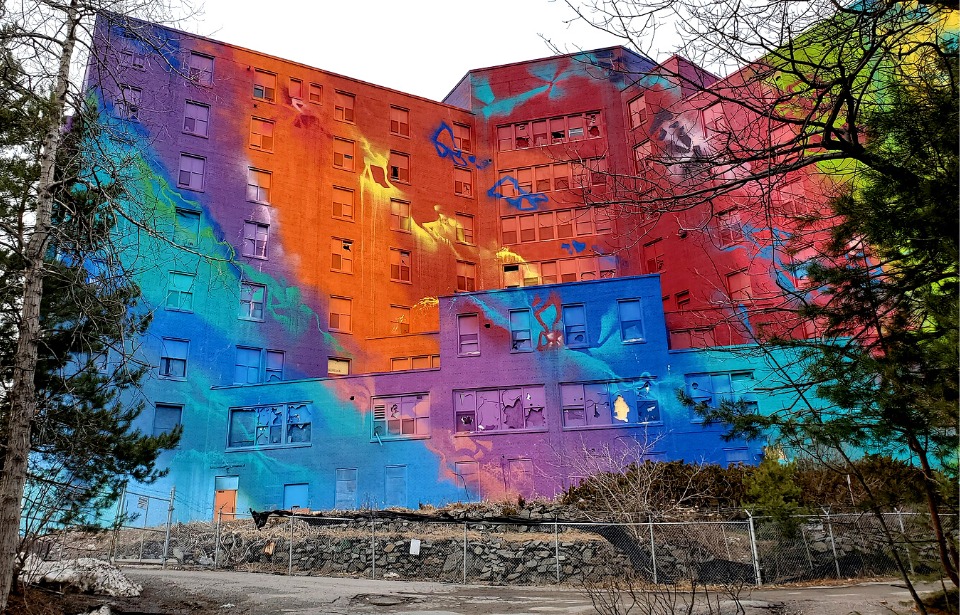
Construction of St. Joseph’s Health Centre
In 1944, the Sisters of St. Joseph of Sault Ste. Marie were approached by a group of doctors, Monsignor J.C. Humphrey of Christ the King Church and Bishop R.H. Dignan of the Diocese of Sault Ste. Marie to help construct a hospital in the Sudbury area. The Sisters purchased seven acres along Paris Street and mortgaged their personal residences to finance the facility’s construction.
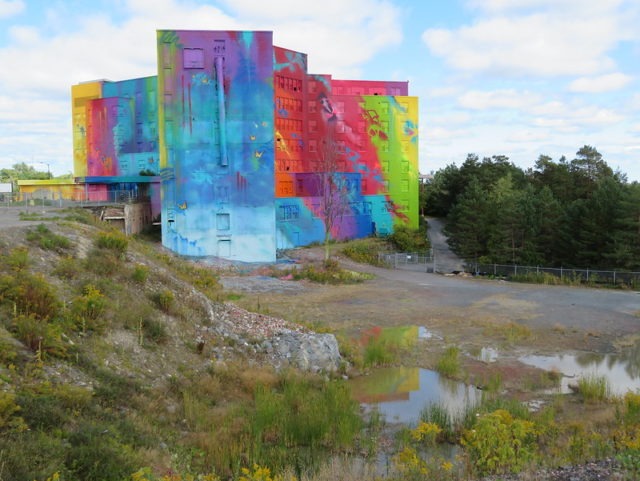
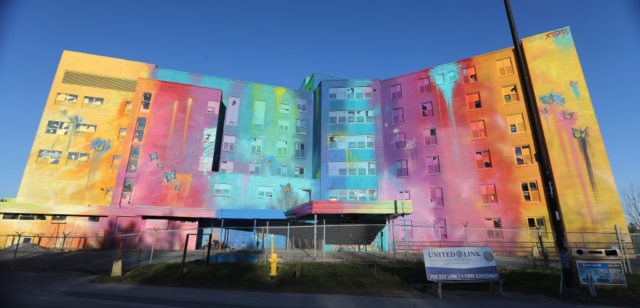
Without financial support from the government, the cheapest building model was chosen for the building’s construction, which then went by the name “Sudbury General Hospital of the Immaculate Heart of Mary.” It was built using a steel beam grid system covered by a brick facade, a rather simple design – even by the standards of the time.
Continued expansion
St. Joseph’s Health Centre officially opened in October 1950, becoming the first English-speaking hospital in Northern Ontario. The first patients were admitted the following month.
Over the course of its operations, the hospital was expanded numerous times to include additional treatment wings and even a center dedicated to the care of children. Other projects saw the construction of a medical library and nuclear medicine department, an intensive care unit, neurosurgery facilities, poison control and volunteer service center, and a pastoral care department.
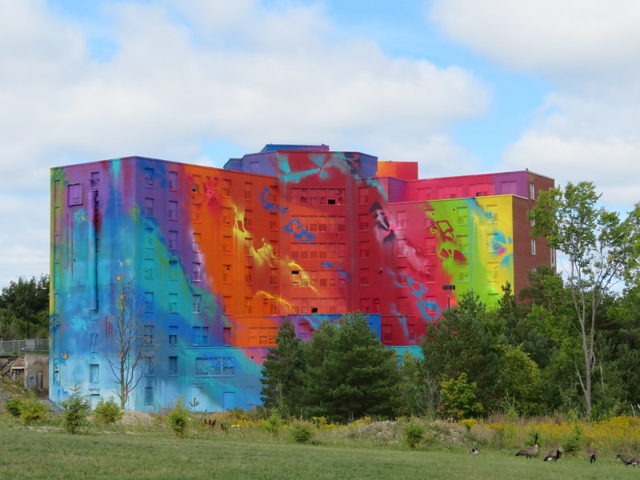
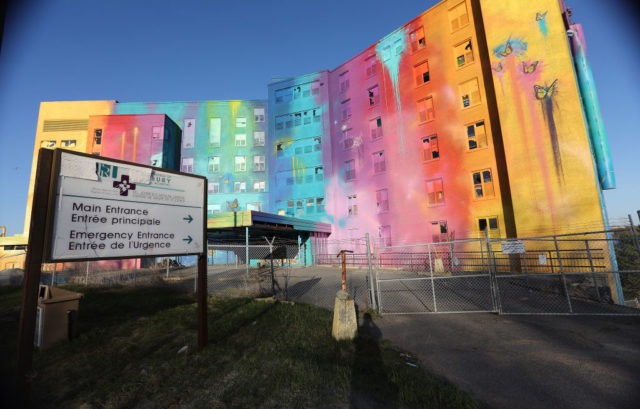
A regional ambulance service was established in 1969, which resulted in a garage being constructed at the hospital. As well, within one of the new wings were built new delivery rooms; an eye, ear, nose and throat unit; X-ray and laboratory facilities; operation theaters; and an area for major emergencies.
When paired with the addition of a CAT scanner in 1980 and the construction of a helipad six years later, St. Joseph’s Health Centre became the regional referral center for surgical services and trauma care, with the ability to accommodate 375 patients.
Decline and closure of St. Joseph’s Health Centre
St. Joseph’s Health Centre began to experience its decline in 1973, when patients died in the hospital’s A-wing. While the cause was never concretely uncovered, it’s heavily suspected the deaths were the result of a mix-up between nitrous oxide and oxygen pipes. This was followed 16 years later by a suspected arson in one of the storage rooms, which caused extensive smoke damage.
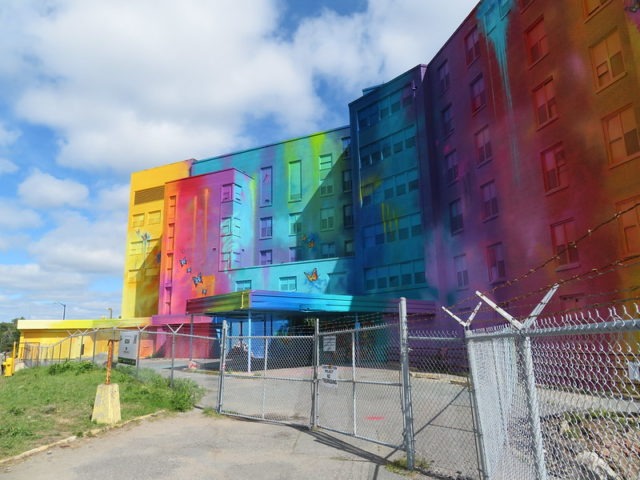
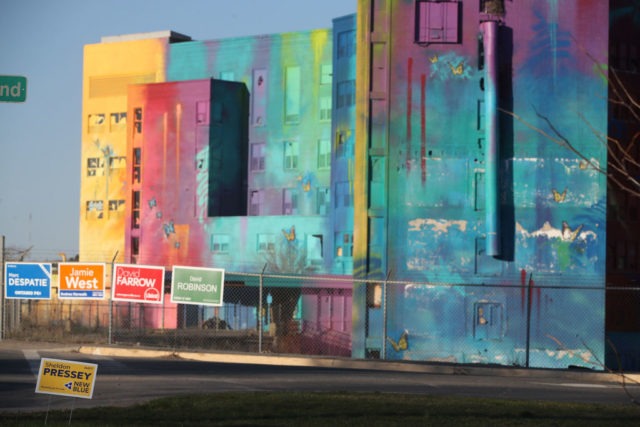
In 1997, the decision was made to consolidate Sudbury’s three hospitals into one location, leading to the announcement that St. Joseph’s Health Centre would be shutting down. The Sisters of St. Joseph looked into the possibility of turning the building into a long-term care facility to save it from demolition, but the necessary renovations were deemed too costly.
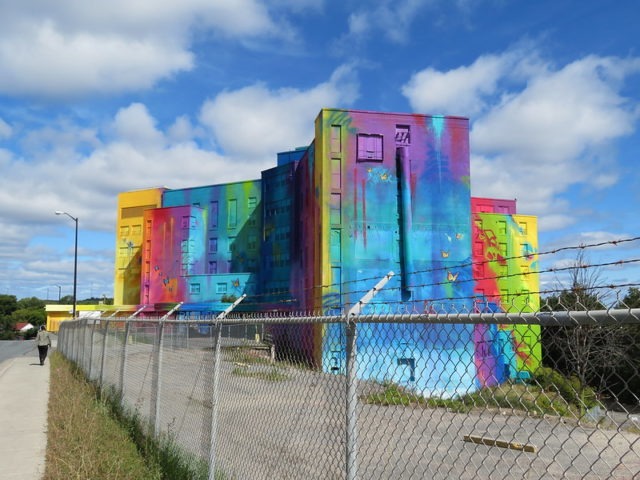

The hospital officially shut its doors in 2010 and the building was sold to Panoramic Properties, which planned to turn it into residential apartments. This, however, was put on hold after the release of Mark Leslie’s book, Spooky Sudbury: True Tales of the Eerie & Unexplained, which claimed the location was haunted. This led many potential residents to become too scared to reside in the former medical facility.
Home to Canada’s largest mural
In 2019, Panoramic Properties commissioned artist Kelly Graval, professionally known as RISK, to paint the building’s facade. The project, which was partially funded through a grant from the provincial government, would be completed as part of the annual Up Here Festival, a local urban art and music event.


The 80,000-foot mural, which has since been deemed the largest in Canada, features a wide array of colors and covers the majority of the exterior of St. Joseph’s Health Centre. The only areas to remain unpainted are the back of the hospital and the helipad, as the rough terrain made the areas too difficult to reach.
